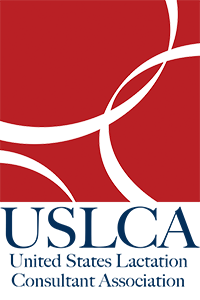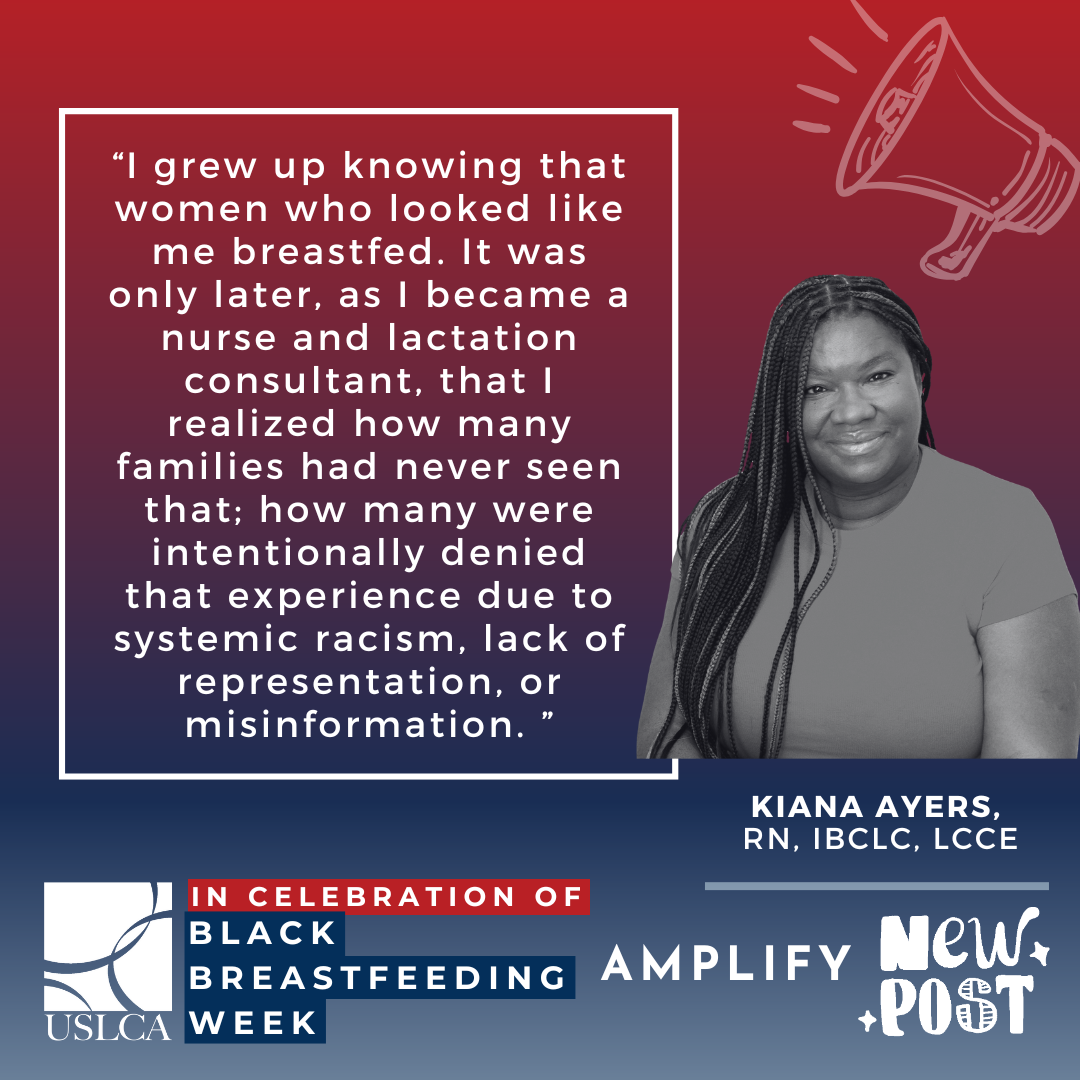Spilling the Neurodiversi-TEA: 7 Tips for Supporting Neurodivergent Families
By: Genny Stiller NP, IBCLC
 Happy April friends and colleagues, it’s Autism Acceptance Month. Curious about neurodivergent affirming lactation support? Today is your day. My name is Genny Stiller and I am a Pediatric Nurse Practitioner, IBCLC, and Certified Neurodiverse Lactation Specialist. I look forward to writing this guest blog post every year because it’s a meaningful way to honor the neurodivergent lactation experiences of others, as well as my own.
Happy April friends and colleagues, it’s Autism Acceptance Month. Curious about neurodivergent affirming lactation support? Today is your day. My name is Genny Stiller and I am a Pediatric Nurse Practitioner, IBCLC, and Certified Neurodiverse Lactation Specialist. I look forward to writing this guest blog post every year because it’s a meaningful way to honor the neurodivergent lactation experiences of others, as well as my own.
USLCA has been a steadfast supporter of neurodivergent affirming lactation support over the years and continues to foster an inclusive lactation community. Thank you for joining me today to learn a little more about fostering a neurodivergent affirming environment in clinical lactation practice.
How many neurodivergent people are we seeing in lactation?
Interestingly, this was the very question that prompted my curiosity when I began my deep dive into this work 5 years ago. Unfortunately, this metric isn’t routinely collected (yet), so the lactation-specific data is not available. However, we do know that in the general population that number is around 15-20%. Is that more or less than you thought?
What exactly is neurodivergence or neurodiversity- are they the same thing?
Excellent question. Neurodiversity is more of an umbrella term coined by Judy Singer in 1998 to describe the variations of human neurobiology across a range of domains, including differences in how social and sensory information are processed, how attention is allocated, and how movement is planned and executed. Neurodiversity is akin to biodiversity but for brains, it includes typically processing, differently processing brains, and everything in between. Neurodivergency is similar to neurodiversity, but more specifically, it refers to the divergence from typical patterns and functions. It encompasses multiple developmental, sensory, cognitive, and social differences.
How does neurodivergence relate to lactation?
We know from decades of research that all these beautiful variations in neurobiology and processing create a unique life experience that is rich with sensory, social, developmental, and processing differences. Ninety percent of neurodivergent individuals are navigating daily life with sensory sensitivities and lactation is no exception. Neurodivergence is not a condition with symptoms, rather it is a way of engaging with life. The qualities of neurodivergence are active and present during the lactation experience and are often experienced with heightened intensity.
Where do we go from here?
Lactation education is thorough and robust, however, there are no chapters in the big book of human lactation about supporting the neurodivergent parent and family (yet). Current clinical pathways were created with the neurotypical person and family in mind. That means 1 out of 5 lactation clients and co-parents may not receive support that aligns with the way their brains and bodies work. After five years of neurodivergent specific lactation work and research, my leading question for the future is this, “Do we have the lactation training we need to effectively support neurodivergent parents?” My goal is to make the response a “YES” for as many clinicians as possible.
How do we go about learning what our neurodivergent clients’ needs are?
To be honest, that’s a bigger question than we have time to fully cover in this blog post. But, I will share a few suggestions to get you started. When you’re ready to learn more, you can take the next step and sign up for a neurodivergent lactation support continuing education course… or three. Today, we’ll begin with 7 tips for supporting neurodivergent parents and families.
- Get Curious. Include common neurodivergent conditions like autism spectrum condition (ASC), attention deficit disorder (ADD), dyslexia, and sensory processing condition (SPC), to name a few, in your intake forms. Don’t forget to include sensory sensitivities alongside food sensitivities and medication allergies. Being curious about how these shape the lactation experience demonstrates your commitment to providing inclusive and neurodivergent affirming support.
- Level Up Education and Information Sharing.Normalize the neurodivergent experience and diversify communication modes. Have accessible options like dyslexic friendly fonts, infographics, choice boards, diagrams, and videos actively in place as a standard practice. Offer multiple tele-health communication options such as audio calls, email, and text messaging to enhance accessibility and understanding.
- BeSensory Conscious. Sensory sensitivities can significantly impact the lactation experience for neurodivergent parents. Be mindful of sensory triggers such as touch, sound, smell, light, and movement (or lack of), and make Sensory Conscious Lactation Support© a standard of care. Include a sensory conscious space and place for parents to process the sensory experiences of lactation.
- Use Assistive and Alternative Technologies.The sensory experience of skin-to-skin can potentiate sensory overload, making nursing intolerable at times. Explore assistive technologies, tools, and alternative feeding methods such as electric pumps and paced bottle feeding to continue milk expression. These options can provide neurodivergent parents and co-parents with greater flexibility and control over their feeding rhythms and experiences while still promoting bonding.
- Be Patient and Hold Space. Lactation is a heavily loaded sensory experience and also quite disruptive to any pre-existing rhythms and daily anchors. Be mindful that navigating this intense change in routine can be manageable at times, and arduous at others. Developing new rhythms and a feeling of safety takes time, practice, space, and support.
- Peer Support Network. Connect neurodivergent families to peer support networks, online communities, and support groups focused on the neurodivergent lactation and parenting experience. Sharing experiences, insights, and strategies with peers who can relate to their unique circumstances can be empowering and affirming.
- Research and Reflect. Stay informed about new developments, research, and best practices in both neurodiversity and lactation support. Continuously reflect on your practice and be open to feedback from neurodivergent individuals and communities.
Thanks for sticking around to the end. I hope this post nurtures your neuro-knowledge and leads to expansion and growth in your clinical practice. By implementing just a few of these strategies, you can begin to cultivate a neurodivergent affirming lactation practice that prioritizes inclusivity, respect, and support.
Neurons all fired up? Samezees. 😉 Send me an email and let’s continue the conversation at genny@NLECenter.com
About the Author:
Genny Stiller (she/her) is a Board Certified Pediatric Nurse Practitioner with a Master of Science in Nursing. She is also an International Board Certified Lactation Consultant and a Certified Neurodiverse Lactation Specialist.
Her passion project is her work as the owner and curriculum creator at the Neurodiverse Lactation Education Center where she offers neurodivergent affirming lactation education and training for clinicians.



